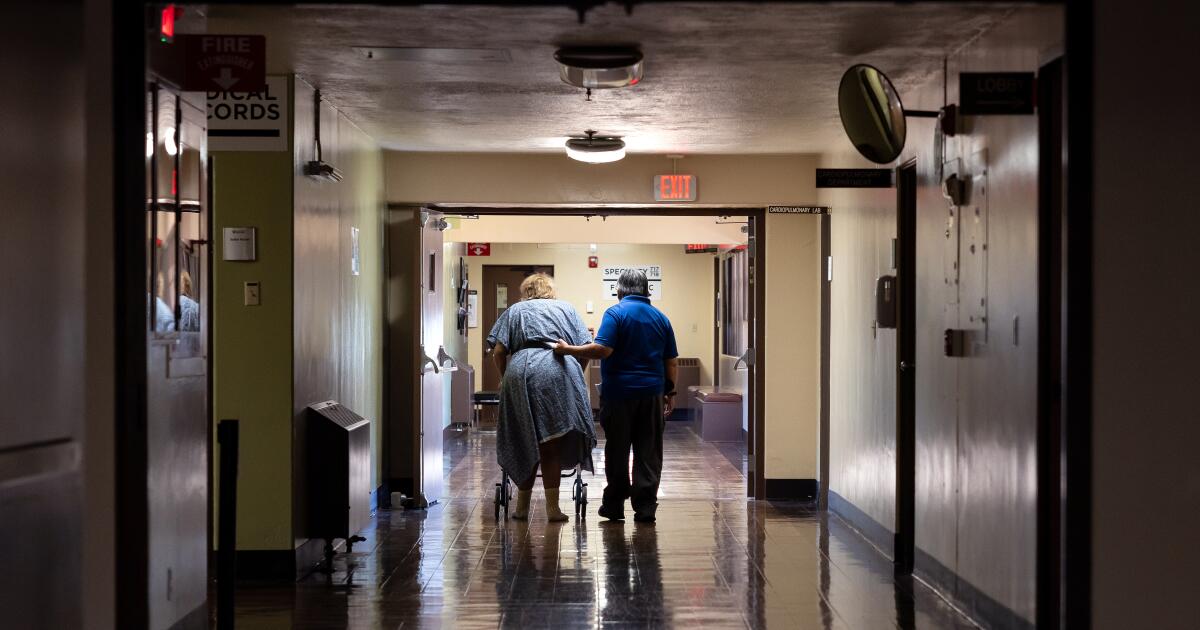By MILEXSI DURAN and ARIEL FERNANDEZ
RIO CAUTO, Cuba (AP) — Thousands of Cubans remain without electricity, water or adequate shelter nearly a month after Hurricane Melissa struck the eastern part of the island, one of the worst Atlantic storms on record.
During the day, families go to the nearest river to fill plastic containers with water, and at night they gather to sleep in temporary shelters and tents.
“We lost everything in the flood,” said 80-year-old Lucia Garcia, “and today I’m here, very depressed and very sad,” she said.
Garcia lives in a small classroom with her two children, ages 45 and 55, and her ailing 81-year-old husband, who remains bedridden.
The school where they live in the city of Rio Cauto serves as a shelter for 14 families; There they and 25 other families living with relatives and neighbors are provided with daily food. Water trucks pass by every three to four days.
Many of the city's residents lived along the river and lost their homes after Melissa crossed into eastern Cuba, forcing nearby dams to release large amounts of water.
According to a report published on November 10 in the official newspaper Granma, more than 2,300 people were evacuated from the Rio Cauto area and more than 750 people were housed in private homes. The return of residents to their homes has been completed, the statement said.
Heavy damage was also reported in the nearby town of Los Mangos, where residents said there was severe flooding the day after the hurricane made landfall.
At dawn, the entire city was under water, recalls Anisleidis Hidalgo.
“We live with a lagoon on one side and a canal in the front, surrounded by river water. We were evacuated due to the arrival of a cyclone,” he said. “On the way back we were told there would be flooding, we went out onto the road because we had been warned in advance, but no one expected the water to reach that level,” he said.
She lives in a military-style tent with her five-year-old daughter and two other families.
Lianette Socarras, a social worker from Los Mangos, noted that 58 people, including 30 children, are sharing 10 tents donated by the Indian government.
“The most pressing problem we have now is the supply of drinking water to populated areas,” he said, noting that there are no liquid reserves.
“The sea has entered my house”
Soaked mattresses, household appliances, clothing, food, furniture and other items remain scattered outside homes, and the smell of decomposing carcasses of animals killed during the hurricane wafts across the city.
Neither the storm nor the flood damaged Los Mangos' power grid, but planned power outages had been going on for many hours, further exacerbating an already difficult situation.
In the coastal municipality of Guam, several towns are still recovering from the hurricane.
“The sea entered my house and wet the mattresses, electrical equipment and everything there,” said Altagracia Fonseca, a 65-year-old retiree.
Recently, she went to a nearby river to wash some of the clothes she was able to salvage from the hurricane.
Before Melissa arrived, I evacuated and packed only two changes of clothes: a toothbrush, toothpaste, and a towel.
“I prepared things like a person who is going to spend a day away from home does, that’s what I did,” he said, breaking down in tears. “I never thought I would find the disaster that is now my home. It was sad and very painful.”
Elisandra Zorrilla found herself in a similar situation.
“They told us to evacuate. I packed a backpack with clothes for me and my children, these are the clothes we have,” he said, saying it was something none of them would forget.
Zorrilla, along with her husband, two children and dog Rocky, live in a small grocery store where they have improvised a kitchen and space that serves as both a bedroom and living room.
“They're telling us they're going to help us, but the resources haven't arrived yet,” Zorrilla said.
Patience is running out
Guam has been experiencing rolling power outages, and Unión Eléctrica officials have warned that repairs could last until mid-December.
But patience is running out.
Recently, residents of El Carmen blocked the main road with downed trees and power poles, noting that the power had been out before Melissa arrived.
Alfredo Lopez, general director of the Electrical Workers Union, said in a heated discussion with residents in the middle of a blocked highway that everyone wants electricity and that the organization is working tirelessly to achieve it.
While food, mattresses, shingles and other items are distributed to hurricane victims, many needs remain unmet as relations between Cuba and the United States are at their most strained since U.S. President Donald Trump and Secretary of State Marco Rubio took office.
Both countries have radically tightened sanctions on the island that were imposed more than six decades ago to force it to change its economic model.
In Cuba, where authorities evacuated more than 700,000 people from coastal areas, no deaths were reported as a result of the hurricane.
The UN said about 53,000 people on the island have been unable to return to their homes, including 7,500 living in official shelters.
Melissa also made landfall in Jamaica, where at least 45 deaths were reported, and its outer bands touched down in Haiti, where at least 43 people died.
___
This story was translated from English by an AP editor using a generative artificial intelligence tool.








